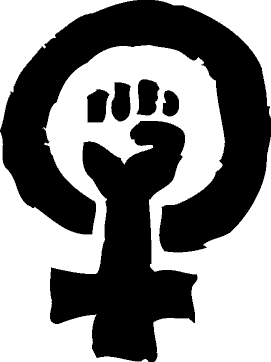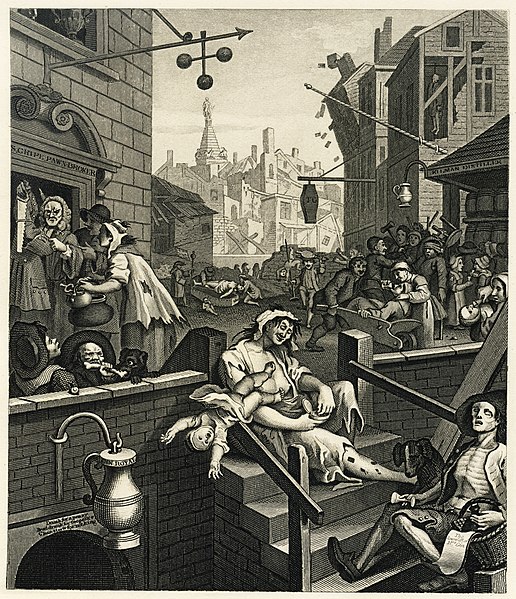
A victory this week for the
Safety First Coalition, as legislation attempting to further criminalise prostitutes was thrown out, once more, by the House of Lords. The legislation, which would have involved forced rehabilitation or prison for repeat offenders and greater powers given to the police to arrest and incarcerate hookers, has been officially axed from the extremely dubious Criminal Justice and Immigration Bill. (Keep your eye on this one).
Call me sally-state-the-obvious, but when a person is in the sort of situation where prostitution starts looking like a viable career option, the fact that it might be illegal is probably going to be the least of their worries. Right, I'm going to take a job which is widely seen as degrading, unstable, hugely dangerous, exposes me daily to disease and isolates me from my friends and family - no, but wait! I might get a criminal record!
The functional illegality of prostitution in the UK serves only one purpose: to better allow the police and others to bully and pick on the most vulnerable members of society - mostly young, mostly women, almost exclusively poor and desperate, often chemically addicted and forcibly on the wrong side of a sexually conformist-heteronormative privilege divide.
Angela Millen, a London barrister, told me yesterday about Shani*, from London, who has 379 convictions for soliciting, and who has been served with an ASBO preventing her from entering the London Borough of Lambeth - where her whole family, including an ailing mother, reside. As a result the 37-year old, who is now familiar to the police and an easy target, spends half of her time in Holloway women's prison, and the rest of the time working the streets illegally in order to feed herself outside of custody. There is no conceivable way in which current government legislation is helping women like her.
Let me make one thing absolutely and incontrovertibly clear: we are not talking about
Belle de Jour. Belle de Jour, if she exists (and I'm a believer), is a sexually self-possessed and self-determining woman with a lot of support in the career she has chosen. She has a financial, emotional, commercial and personal buffer which makes it both safe and profitable for her to continue with prostitution (and prostitution blogging) as a career. She happens, however, to be the exception to the rule that the patriarchal fantasy of the happy hooker is fallacious (a phallacy...oh, they're rolling in the aisles).
I have
written before on the media circus around Belle De Jour. She and those who support her most vociferously are absolutely right in stating that prostitution is a career choice, and, in some rare circumstances, only that. The fact that Belle has built an extremely successful writing career around prostitution no doubt affects how much she enjoys her work, but the fact stands that prostitution - when it does not involve personal, social, financial and physical subordination on every level, as it normally does- is not in itself a degrading career choice. For the vast majority of young men and women entering the profession, however, that level of choice is simply not on the cards.
Is the job degrading for most prostitutes? Yes, but not for the reasons you might think. We live in a society simultaneously in denial about our massive commodification of sex and obsessed with women's sexuality as a moral code. The selling of sex is degrading because it is taboo and quasi-criminalised, and it is taboo and quasi-criminalised because women actively selling sex rubs our faces in one of the salient facts of patriarchal capitalist societies: that sexuality, particularly of women and vulnerable men, is on display for the highest bidder.
The whore is not culpable for her (usually) reduced social and financial circumstances: society is, and the whore is criminalised to allay our own self-disgust . It is not the hooker who is reprehensible, but her clients, which is why each time a noted politician - such as New York governor and celebrated anti-sleaze campaigner,
Eliot Spitzer - is discovered paying substantial sums for the services of prostitutes, it continues to cause a scandal. It is the hypocrisy that disgusts us: however much we don't want prostitution on our doorsteps, we are even loather to imagine leading patriarchal and authoritarian figures engaging intimately with an industry whose gross lack of regulation has turned it into a cipher for the violent mosogyny at the heart of capitalist patriarchy. I can only wish
the aspiring musician who provided Spitzer with her personal services the best of all possible luck in
her future career.
So what's the state of play now for Britain's sex workers? Well, the most the IUSW and Safety First knew they could hope for at this stage was maintainance of the status quo, which they've worked tirelessly for and duly achieved. So, although forced rehabilitation and measures leading to the jailing of more than the current 3,500 prostitutes a year are being thrown out, soliciting and brothel-keeping are still very much illegal, as is kerb-crawling, making advertising sex for sale even more dangerous. 'Living on the earnings of prostitution', however, has not been illegal since 1956, meaning that prostitution is legal as long as you don't do it safely or in public.
Semi-criminalisation of this kind has become the default response of the British authorities to distastefully longstanding social problems. Making an activity such as prostitution effectively illegal - but just illegal enough that it remains unregulated, uncontrolled, unprotected and, most importantly, unofficial - means the authorities can be seen not to endorse social injustice without actually having to deal with an endemic social tragedy in any meaningful way.
Exactly the same logic applies to underage drinking and to marijuana legislation (weed is a class C drug, so, again, functionally legal but unregulated, meaning that the under-16 market is flooded with free skunk). Britain does not want to think of itself as a nation whose under-40 yr old population relies on downer drugs like hash and skunk to help it cope with day-to-day living - but it is. Britain does not want to see itself as a nation whose children are blasted and wayward because it's some of the most damn fun they can have - but it is. Britain does not want to think of itself as a nation where hundreds of thousands of vulnerable woman are exploited and abused every day, where the bottom line of women's value is still their sexuality - but it is.
I say Britain because semi-criminalisation is a particularly British political phenomenon. Where countries like the USA simply cart off whores, stoners and teenage drinkers for lengthy jail sentences, we stamp a 'could do better' sticker on the problem and leave the police and media snootiness to bully it into invisibility. We sneer at the hyperconservatism of some US states whilst committing a gross sin of ommission: neglect by studiedly ignoring - or, worse, accepting - the problem.
If the British Government really wanted to do something about prostitution, there's one blindingly obvious step that they could take and aren't: ensure that poor and desperate women have other viable choices. Provide a genuine living minimum wage which
allows the poorest members of society a decent, legally-obtainable standard of living. This is the bottom line for anti-prostitution campaigners both within and outside Westminster. John McDonnel MP supported this pro-worker sentiment, declaring to the Safety First Coalition last week, "I welcome the government's announcement and hope that it signals a future approach towards prostitution underlined by welfare measures rather than criminalisation, putting the needs and safety of sex workers above the desire for moral condemnation."
All of this talk has made me terrifically moopy, so I'm off to spend the remainder of the money I made at my last terrible retail job on crack and jelly babies. Expect more updates on less legitimate prostitution legislation as the situation progresses.





